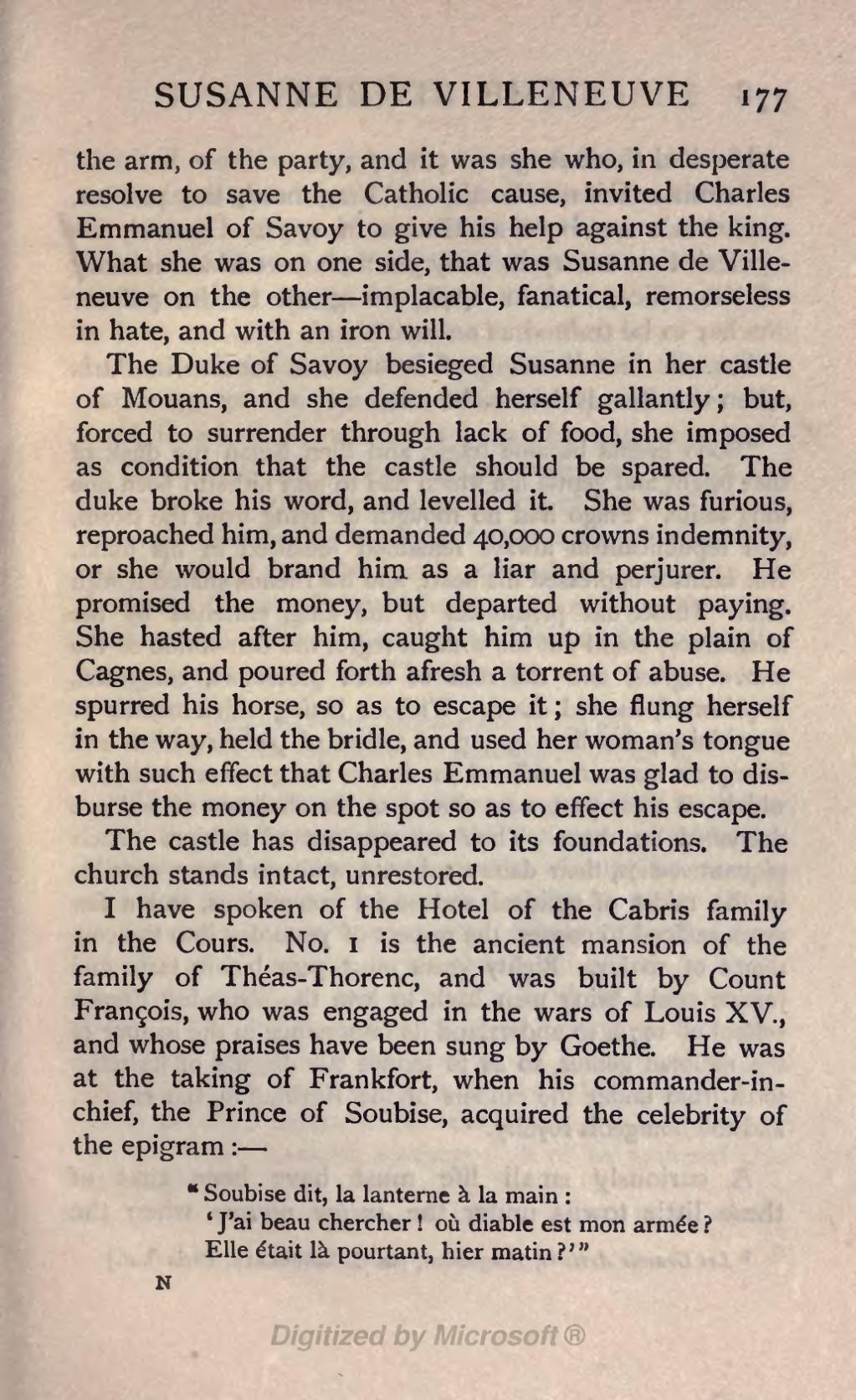the arm, of the party, and it was she who, in desperate resolve to save the Catholic cause, invited Charles Emmanuel of Savoy to give his help against the king. What she was on one side, that was Susanne de Villeneuve on the other—implacable, fanatical, remorseless in hate, and with an iron will.
The Duke of Savoy besieged Susanne in her castle of Mouans, and she defended herself gallantly; but, forced to surrender through lack of food, she imposed as condition that the castle should be spared. The duke broke his word, and levelled it. She was furious, reproached him, and demanded 40,000 crowns indemnity, or she would brand him as a liar and perjurer. He promised the money, but departed without paying. She hasted after him, caught him up in the plain of Cagnes, and poured forth afresh a torrent of abuse. He spurred his horse, so as to escape it; she flung herself in the way, held the bridle, and used her woman's tongue with such effect that Charles Emmanuel was glad to disburse the money on the spot so as to effect his escape.
The castle has disappeared to its foundations. The church stands intact, unrestored.
I have spoken of the Hotel of the Cabris family in the Cours. No. 1 is the ancient mansion of the family of Théas-Thorenc, and was built by Count François, who was engaged in the wars of Louis XV., and whose praises have been sung by Goethe. He was at the taking of Frankfort, when his commander-in-chief, the Prince of Soubise, acquired the celebrity of the epigram:—
"Soubise dit, la lanterne à la main:
’J'ai beau chercher! où diable est mon armée?
Elle était là pourtant, hier matin?'"

